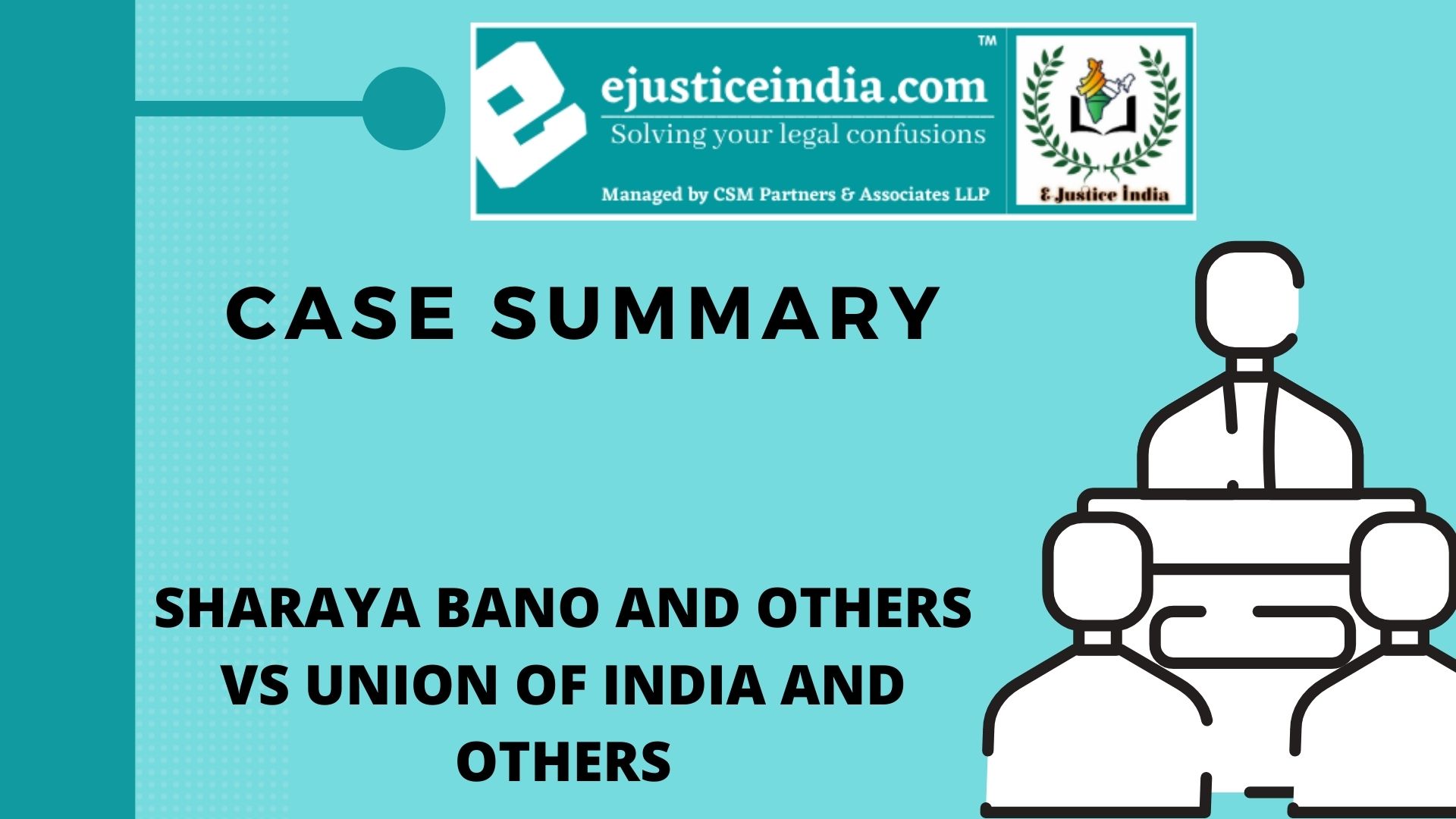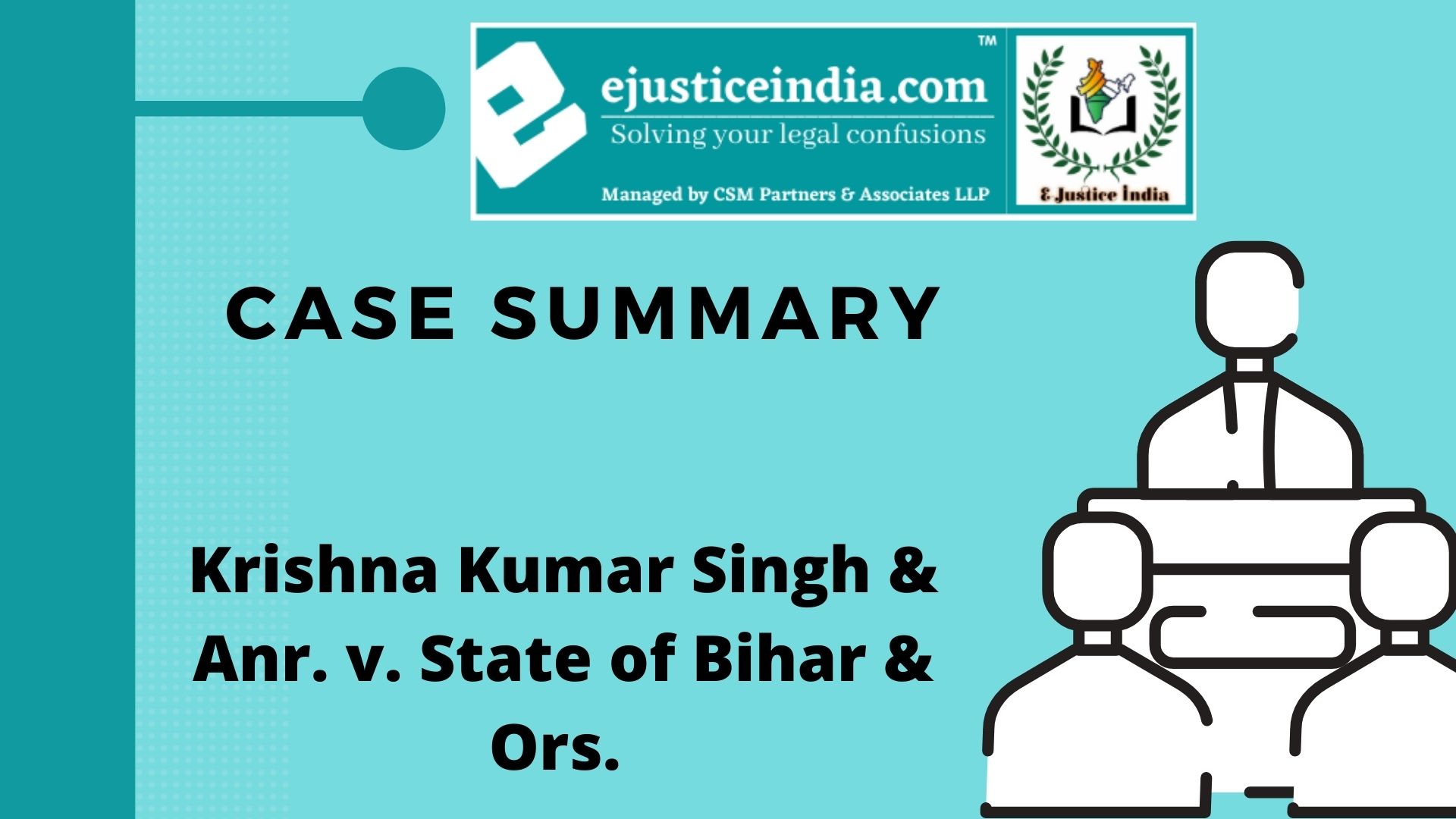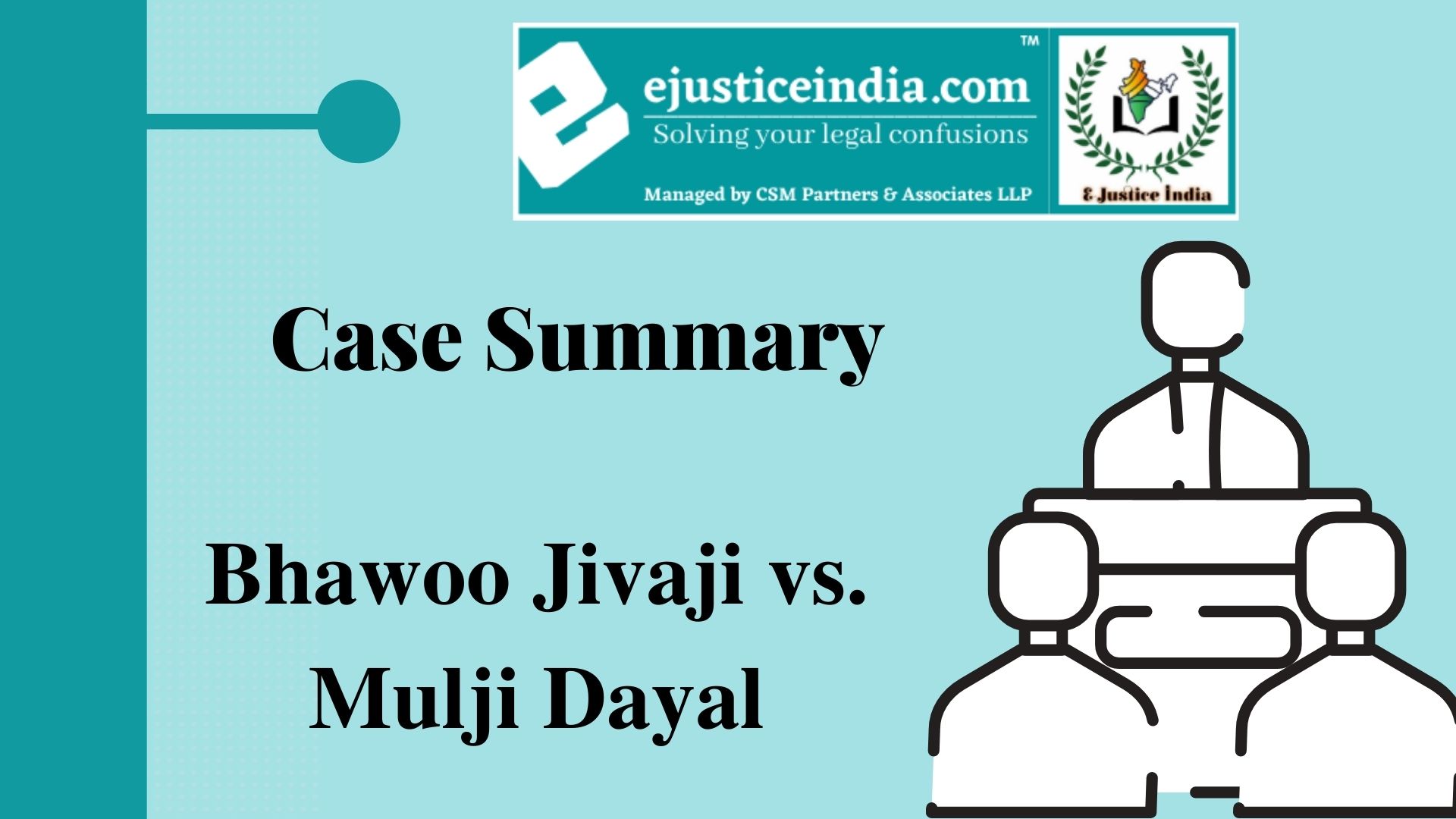Case Summary: Bhagwan Dass v. State (NCT of Delhi)
Author: Ishita Arora
Case Name: Bhagwan Dass v. State (NCT of Delhi)
Citation: (2011) 6 SCC 396.
Bench: Justice Markandey Katju and Justice Gyan Sudha Misra.
Introduction
The present case is of honor killing. The Supreme Court in this case held that honor killings due to any reason come under the category of rarest of rare cases and a person committing such crime deserves death penalty. It is time to stamp out these barbaric, feudal practices which are a slur on our nation.
Facts of the case
The facts of the case state that the appellant was very infuriated with his daughter, who had left her husband and was living in an incestuous relationship with her uncle. This angered the appellant as he felt that this conduct of his daughter had dishonored his family, and hence he strangulated her to death. The trial court convicted the appellant and the High Court also upheld the decision of the trial court. Hence this present appeal was filed. This was a case of circumstantial evidence. The appellant was the only person present in the house who could have committed a crime and he had a motive for committing the crime too. Moreover, without informing the police appellant tried to perform the last rites of the deceased so as to destroy the evidence of strangulation. The mother of the appellant told to police that her son had told her that he killed his daughter. However, when she appeared as prosecution witness before the trial court she turned hostile and she denied that she had made any statement to the police. But, her statement made to police was admitted and her subsequent denial in the court was not believed because she obviously had afterthoughts and would have wanted to save her son. The confession of appellant made to his mother was admitted as extra judicial confession, which also proved appellant’s guilt.
Issues and facts of law
- Whether the appellant can be convicted for honor killing under section 354 of CrPC?
Judgement
The appeal was dismissed. The Supreme Court held that there is overwhelming circumstantial evidence to prove that the accused has committed the crime as he was infuriated with his daughter and he felt that he was dishonored by his daughter. Hence, the court found no reason to go against the decision of the lower courts and upheld the conviction of appellant.


